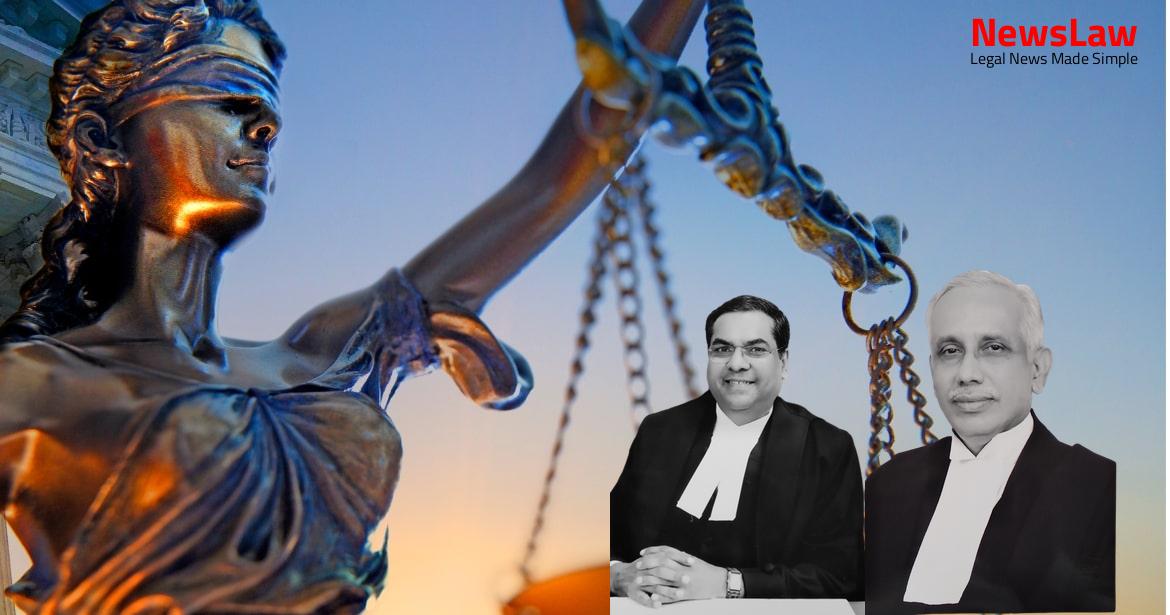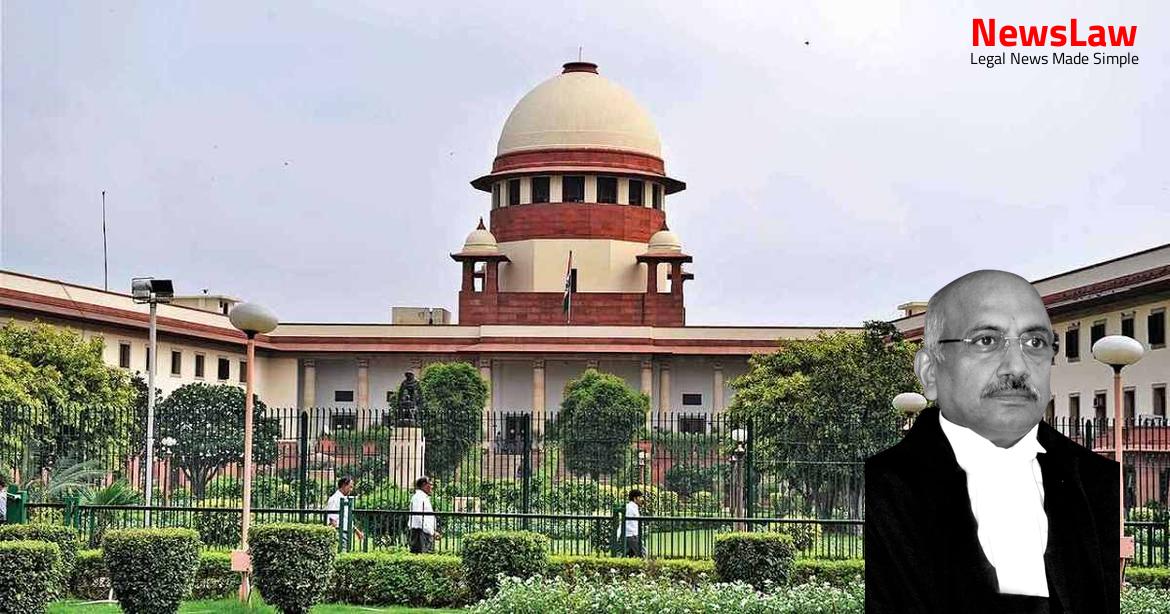In a significant ruling, the Supreme Court of India has settled the controversy surrounding land pre-emption rights in the case of refund and deposit disputes. The judgment, which addresses the concerns of the parties involved, highlights crucial aspects of pre-emption laws. This landmark decision has wide-reaching implications for landholders and legal practitioners alike.
Arguments
- Section 9 of the Act does not contemplate an inquiry into the amount of consideration set out in the sale deed but is confined to any further amounts claimed by the vendee.
- The sections should be given their plain meaning.
- Unrealistic or arbitrary considerations in the sale deed cannot bind the pre-emptor as it would perpetuate a fraud.
- Pre-emptor can file an application under Section 8(1) of the Act on depositing what they believe to be the appropriate consideration, leading to an inquiry under Section 9.
- The power conferred on the Munsif to make an inquiry as considered necessary is essential, or that portion would be meaningless.
- Learned counsel for the respondent referred to judgments of the Calcutta High Court in Sahid Ali case, Jyotish Chandra Sardar v. Hira Lal Sardar, Amitava Shit v. Bablu Kundu, and Smt. Aparna Maity v. Smt. Purabi Das.
- The respondent’s contention was against the appellants’ plea that interpreting the relevant sections would render parts of the law otiose and nugatory.
- Specifically, the respondent argued that the construction advocated by the appellants would make the latter part of Section 8(1) meaningless and nullify the first sentence of Section 9(1).
Also Read: Supreme Court Judgment on Single Till Mechanism for HRAB Calculation: A Comprehensive Analysis
Analysis
- The right of pre-emption under Section 8 of the West Bengal Land Reforms Act requires the full amount of consideration to be deposited along with a 10% levy.
- The time frame for deposit as mandated in Section 8(1) is sacrosanct.
- An inquiry into the stated consideration is envisaged under Section 9 of the said Act.
- The secondary right of pre-emption is a weaker right and requires the deposit of any additional amounts as determined during the inquiry.
- The provisions of Sections 8 and 9 must be strictly construed without leaving discretion to the pre-emptor to deposit any amount deemed proper.
- Any excess amount deposited is refundable if the inquiry determines so.
- Legislative provisions must be read in their plain grammatical connotation to avoid conflicts between different provisions.
- The historical perspective and genesis of the right of pre-emption were deliberated upon in the judgment.
- The jurisdiction of the court in pre-emption cases is clearly outlined in Sections 8 and 9 of the Act, emphasizing the deposit requirement.
- The High Court’s observations and decisions regarding the deposit and refund of excess amounts were analyzed and upheld.
- Transfer of land to any person other than a co-sharer or a raiyat of adjoining land triggers the right of pre-emption under Section 16(3)(i) of the Act.
- The co-sharer of the transferor or any raiyat holding land adjoining the transferred land can apply for transfer within three months of the registration of the transfer document.
- The application must be made to the Collector and must include the purchase money along with a sum equal to 10% of it to be deposited within the specified period.
- The deposit must be made in the prescribed manner for the application to be entertained by the Collector.
- The right of pre-emption under Section 8 requires the deposit of consideration money along with an additional 10% of that amount for the transfer to be approved by the Munsif.
- The Munsif, after necessary enquiry, may direct further sums to be deposited and upon such deposits, orders can be made for the transfer of land.
- The relevant provisions of the Act clearly outline the process and conditions for enforcing the right of pre-emption for specified categories of landholders.
- The right of pre-emption under Section 8 of the Bihar Land Reforms Act was described as a statutory right, though weak, that must be exercised strictly as per the provisions without considering equity.
- In a recent case, the Kedar Mishra v. State of Bihar, a three Judge Bench dealt with the Bihar Land Reforms Act of 1961.
- The case highlighted Justice K. Subbarao’s detailed judgment in Bishan Singh & Ors. v. Khazan Singh & Anr., explaining the right of pre-emption in a four Judge Bench judgment.
- The decision referred to a Division Bench judgment from the Calcutta High Court in Sahid Ali v. S.K. Abdul Kasem to illustrate the objective behind the sub-section and its role in land consolidation.
- Various court views on pre-emption were discussed including judgments by Plowden, J. in Dhani Nath v. Budhu, Mahmood, J. in Gobind Dayal v. Inayatullah, and Mool Chand v. Ganga Jal.
- The judgment in the Bishan Singh & Ors. case came before the present case.
- Different views were expressed regarding the law of pre-emption.
- The Sahid Ali case made reference to the Jyotish Chandra Sardar case for its decision.
- The requirement of exercising the right within the stipulated time is sacrosanct, no extension can be granted even under Section 5 of the Limitation Act.
- If an application is not filed within time and the full amount is not deposited within the stipulated time, no extension can be granted to exercise the right.
- Deposit of the full amount within the specified time period is crucial for triggering the right of pre-emption.
- The speculative exercise of depositing 50% of the amount and continuing for fourteen years does not entitle to an extension of time to exercise the right.
- A person failing in the right of pre-emption should not be deprived of the amount deposited.
Decision
- The State should not be permitted to appropriate the amount.
- The amount should be refunded back to the pre-emptor.
- The respondent is entitled to the refund of the amount deposited by him, with any interest earned if the deposit was interest bearing.
- The appeal is allowed, and the parties are to bear their own costs.
- This decision should settle the controversy regarding the ‘weak right’ of pre-emption.
Also Read: Selection and Appointment of Judicial Officers in Himachal Pradesh
Case Title: BARASAT EYE HOSPITAL THR. ITS REP. Vs. KAUSTABH MONDAL
Case Number: C.A. No.-001090-001090 / 2010



